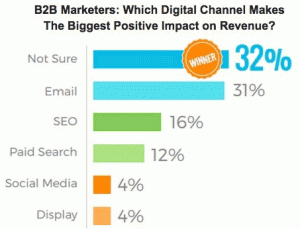The decision to start a business certainly isn’t an easy one, fraught with unknowns, risk, and planning challenges. If the decision to start a business were easy, you’d have a lot more people choosing to start their own business, but that’s not the case. While technological and regulatory changes make owning a business more feasible than at any other time in history, it’s still a tough decision. Here are 4 reasons to start your own business, as well as other considerations before you take the leap.
But, before we jump into today’s topic, let’s look at various business structures you might consider.
 Photo by nappy from Pexels
Photo by nappy from Pexels
How to start a business
Your decision to start a business differs depending on the type of business you envision. Here are some options:
A part-time income enhancement business
You might start a small, part-time business relying on some marketable skill to bring in additional income. Maybe you even hope this business blossoms over time to the point where you can quit your full-time job. In the gig economy, portals like Freelancer (for creatives) and Porch (for homeowner needs), help you turn your skills into additional income (or even a full-time gig). Platforms like Etsy and traditional small retail operations, such as farmer’s markets, offer retail operations without all the risk inherent in larger retail endeavors.
Lifestyle businesses
If you want to go bigger and build a business to support you and your family without requiring outside work, you might start a small business or buy into a franchise, which is less risky than starting a business from scratch. For instance, you might own a senior care franchise given the high growth in this market. We talk about these businesses as lifestyle businesses since the main goal when you start a business such as these, your goal is to replace your income.
Owners fund lifestyle businesses with their own savings, credit balances, or small bank loans to purchase needed equipment, facility rent, and inventory. A franchise operator might offer to fund startup costs, especially for minority owners, in exchange for later compensation.
Entrepreneurial businesses
True entrepreneurial businesses go well beyond lifestyle businesses. Entrepreneurs dream big and often raise the startup capital necessary to fund that dream through investors who expect a return within a relatively short period of time.
Investors commonly take stock in return for their investment and may use their equity power to influence operations. For instance, early in Apple’s history, the board elected by stockholders forced Steve Jobs, Apple’s co-founder, out of the business due to disagreements over the direction appropriate for growth.
Entrepreneurial businesses support the growth of GDP in a country because, successful businesses, not only replace the owner’s salary, they grow to employ other workers. In fact, a healthy economy relies heavily on entrepreneurial businesses and most employment increases come from these businesses rather than the large, politically-powerful large businesses that mainly turn over employment rather than increase employment.
4 reasons to start a business
To challenge yourself
Sometimes, business owners started a business because they wanted the challenge or felt they had something to prove. Anyone who ever owned a business knows times get tough, with many obstacles between you and success, and other times when things go well. It’s those peaks and valleys that are a real test to your character and your work ethic. Just as some people run marathons or compete in Iron Man challenges, others prefer the challenge represented by owning a business, especially if the person comes from a successful professional family.
If you want to challenge yourself to something new, then starting a business is the ultimate challenge but you’ll feel proud once you pull off a successful business operation.
Higher income potential
Again, the amount of money you make each month depends heavily on the type of business you choose. A gig might supplement your income from another job to allow for a few luxuries or help pay for necessities. A lifestyle business commonly compensates the owner for income she would normally receive from a job, although potential earnings vary widely with some owners earning a much higher income than they would if working for someone else and some owners earning less.
Entrepreneurial businesses offer the highest potential income to owners. For instance, entrepreneurs like Jeff Bezos (Amazon), Mark Zuckerberg (Facebook), and Bill Gates (Microsoft) are some of the wealthiest men in the world due to the success of their ventures.
Risk often varies with rewards. That explains why entrepreneurial businesses offer the highest income potential to owners since the failure rate of these startups is extremely high.
Earnings often vary with the age of the business so that profits increase over time, all other things being equal (for instance, certain businesses, like medicine, represent a much higher earning potential than others). The main factor in earning higher profits is your marketing (not just advertising, but critical marketing elements such as product quality, customer service, accurate pricing, and effective distribution to places your target market purchases products like yours).
Flexibility
Having more flexibility in your job may influence your decision to start a business. Flexibility doesn’t mean you won’t work a ton of hours, just that you have some control over which hours you work, unlike with a job where a manager tells you when to show up for work. For instance, if you want to take off early one afternoon to attend a child’s soccer game, there’s no one to tell you that you can’t, you just have to adjust your schedule so no clients or customers expect something from you at that time.
Of course, flexibility means you simply transfer work from times when you have personal matters to attend to other times. Owners often find themselves working long hours and weekends. Many owners work when they’re sick. For instance, a farmer can’t tell his milk cows he’s too sick to milk that day or a consultant can’t expect a client to accept delays because of illness. Owning a business often means no sick days, no vacations, and no weekends, especially in the beginning.
Pursue your passions
When you start a business, you are your own boss and make your own decisions. Don’t like the direction your business is going? Well, you’re the boss, so change direction. Being able to change things that don’t suit you and growing what you’re passionate about is something that not everyone gets in life. Maybe you’re passionate about sustainability, like a student I work with. She’s turning that passion into a business by selling sustainably produced fashion (another passion of hers), as well as offering suggestions to her buyers on recycling old clothing and other sustainable practices they can incorporate into their lives.
Starting your own business takes a lot of hard work, blood, sweat, and tears. However, if you believe in yourself and your ideas, work hard, and get a little lucky, you’ll find success.
Business & Finance Articles on Business 2 Community
(42)










